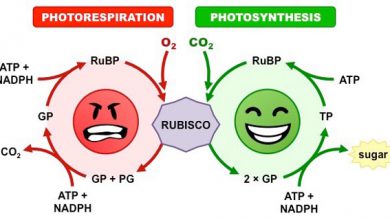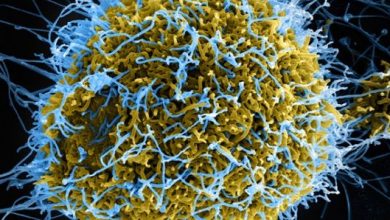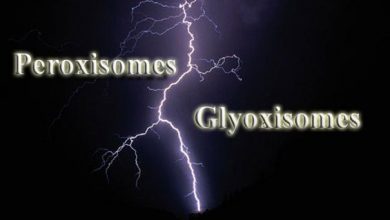Economic Importance of Bacteria in different Field
[wp_ad_camp_1]
Importance of Bacteria
There have both positive and negative importance of bacteria. They play very important role in the life of human beings. Their importance is given below:
Ecological Importance
Bacteria are ecologically very important. They show many adaptations. So they are present everywhere. They decompose organic matter and play an important role in the completion of cycles of nitrogen, phosphorus, sulfur and carbon.
Economic Importance
Bacteria show following beneficial and harmful effects:
- Bacteria are used in number of industries like food, drugs (production of antibiotics and vaccines) and biotechnology.
- They are responsible for the spoilage of food and vegetables.
- Many plant pathogens adversely affect the agriculture the agriculture industry.
- Bacteria are common pathogen of humans. There are 200 species of bacteria which cause disease in man.
- Many bacteria normally live in the bodies of man and other animals and perform important functions.
Medical Importance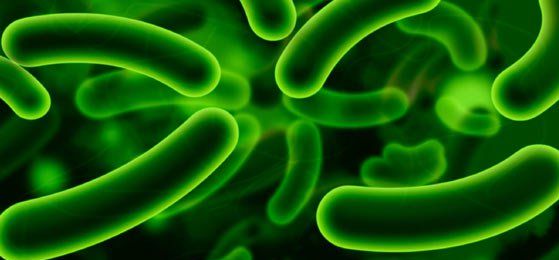
Bacteria are very common pathogens of humans. Approximately, 200 species are known to cause diseases in humans. Many bacteria normally inhabit the bodies of man and other animals.
[wp_ad_camp_2]
(Brief note on Importance of Bacteria)
POSITIVE IMPORTANCE:
1. Decaying of dead bodies:
Bacteria decompose the dead remains of plants, animals and human beings into simpler compounds. In this way they help to clean the world.
2. Bacteria in Industries: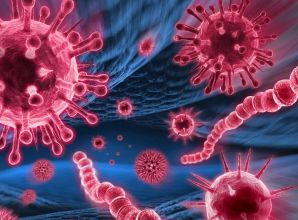
- Bacteria are used in dairy industry they change the milk into curd.
- They are used in the formation of butter and cheese from milk.
- From certain bacteria antibiotics are obtained, for example Terramycin, Streptomycin, Neomycin etc.
- Bacteria are used in the preparation of alcohol and vinegar.
- Bacteria are also used in leather industry.
3. Digestion:
Certain bacteria are present in the intestine of man arid help in the digestion of cellulose.
4. FertiIity of soil:
Bacteria increase the fertility of soil by adding organic substances due to the decompositions of dead bodies.
[wp_ad_camp_3]
5. Nitrogen Fixation:
Bacteria also take part in nitrogen fixation i.e. they convert Nitrogen into its compounds like nitrites and nitrates. These compounds are used by the plants.
NEGATIVE IMPORTANCE:
1. Spoilage of Food:
Bacteria spoil our food stuff in large amount by the chemical process. It is a great loss.
2. Diseases in Man:
Bacteria are responsible to cause various diseases in man and other animals, such as Tuberculosis (T.B.), Pneumonia, Cholera, Typhoid, Tetanus, Syphilis, and Diphtheria etc.
3. Diseases in Plants:
Bacteria also cause disease in various plants, such as Citrus Canker, Fire blight of apple, Ring disease of potato, wilt of solanaceae plants etc.
[wp_ad_camp_4]
Control of Bacteria
It is necessary to control bacteria in home, in industries and in medical fields. The disease can be prevented by controlling the bacteria. The control of bacteria can prevent the spoilage of foods and other industrial products. Microorganisms can be controlled by following methods: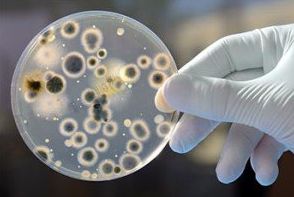
Physical Methods
The process in which we use physical methods to control bacteria is known as sterilization. Steam, dry heat, gas, filtration and radiations are used in process of sterilization. Sterilization destroys all the microorganisms. Following methods are used for sterilizations:
- High temperature is used in microbiological labs for the controlling of microbes. Both dry and moist heat is effective. Moist heat causes coagulation of proteins that kill the microbes. Dry heat causes the oxidation of chemical compounds of the microbes and kills them.
- Certain electrochemical radiations below 300 nm are effective for the killing of bacteria. Gamma rays are used for the sterilization process.
- Membranous filters can sterilize the heat sensitive compounds like antibiotics, serum and hormone etc.
Chemical Methods
Antiseptics, disinfectants and chemotherapeutic agents can be used for microbial control.
[wp_ad_camp_5]
- Antiseptics: Chemical substances used on living tissues (outside the body) that inhibit the growth of microorganism are called antiseptics. Antiseptics are mostly used on wounds.
- Disinfectant: The chemical agents used on non-living material (surgical instrument etc.) that inhabit the growth of vegetative cells of microorganisms are called disinfectant. The important chemical agents used for disinfection are oxidizing and reducing agents. For example halogens (chlorine), phenols, hydrogen peroxide, potassium permagnate, alcohol and formaldehyde etc.
- Chemotherapeutic agents and antibiotics: They destroy or inhibit the growth of microorganisms in the living tissues. They work with the natural defense and stop the growth of bacteria and other microbes. For example: Sulfonamides, tetracycline, penicillin, etc.
(Brief note on Control of Bacteria)
The different methods to control the infections of micro-organisms are as follows:
[wp_ad_camp_3]
- Infected persons should be properly treated by effective medicines.
- Persons in a population should be treated by immunization and vaccination.
- In epidemic condition the infected persons should be kept in quarantine to avoid the spread of infection to healthy persons.
- At different possible stages the life cycle of pathogen should be disrupted, so it cannot cause the infection.
- The host bodies of pathogen should be identified and treated well to control the disease.
- By different ways knowledge and awareness about diseases and infection of pathogen should be provided to the public.
- Many methods should be used to kill or inhibit the infection of pathogens, such as:
- High temperature treatment.
- By ultraviolet rays.
- With the help of antiseptics.
- By the use of antibiotics.
- By chemotherapy (chemical treatment).
